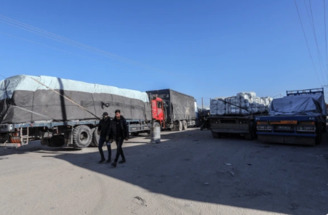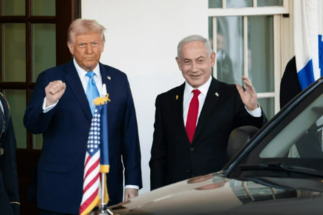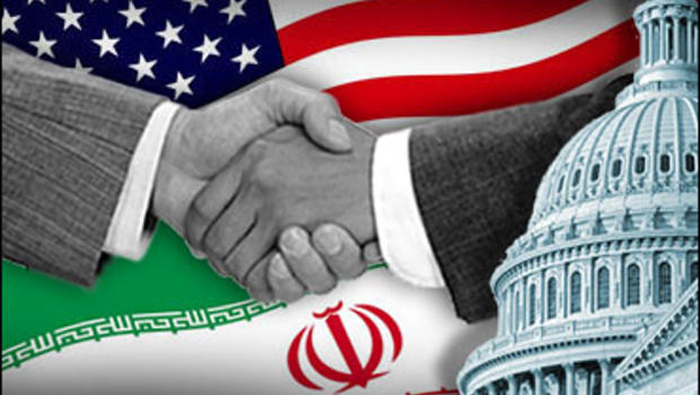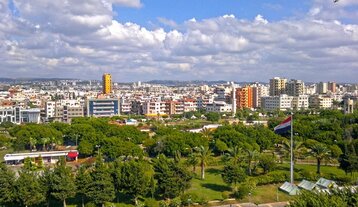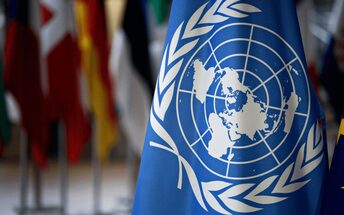-
Iran's influence in Iraq's protest
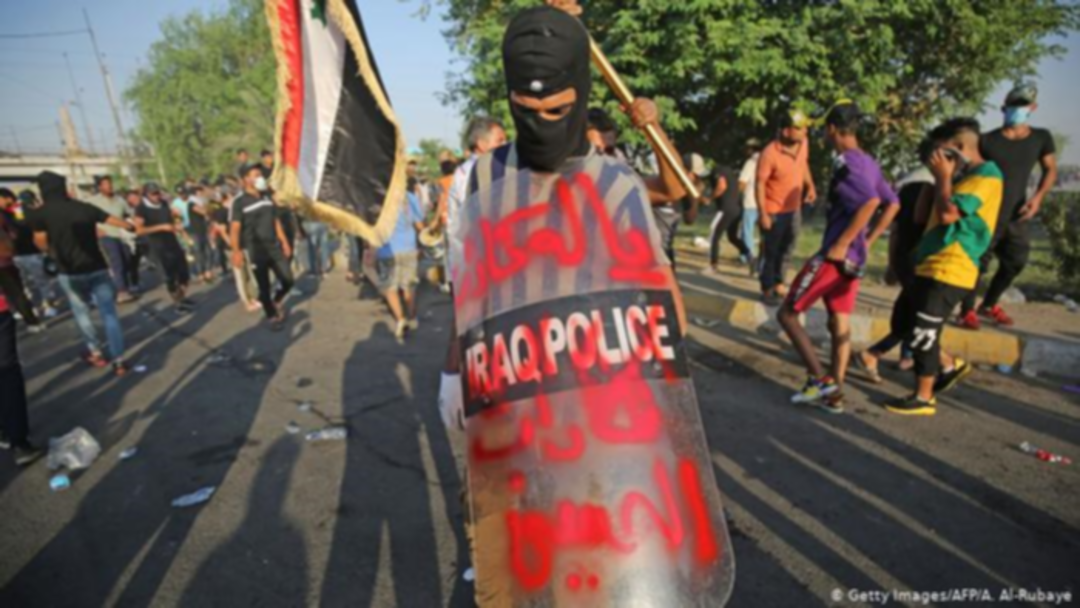
By: Hassan.Mahmoudi
Unquestionably, 1 October 2019 will be remembered as one of the most momentous days of 2019 in Iraq, the day protests erupted in Baghdad and across the country and were met with unprecedented lethal force.
During the week from then, eleven provinces in Iraq went up in flames of protest, which still continue. Thousands of Iraqis, mostly the youth, from all social classes, took to the streets on 1 October demonstrating against corruption, unemployment and Iran's involvement in Iraq.
The security forces responded using water cannon and tear gas, but also for the first time live gunfire and grenades, which resulted in more than 100 deaths and thousands of injuries. The Iraqi government also applied curfews and internet blockades in an unprecedented clampdown on the people’s democratic right to protest.
Only after these events did the government call an emergency session that ended with it presenting an economic plan to ease poverty.
According to VOA, the current protest has two main political targets. One is toppling the corrupt Iraqi government, which is incapable of doing its most basic job: providing services like electricity, water, health care and education. The other is challenging Iran's involvement, politically and economically, in Iraq through the use of proxy militia forces.
At this time, with tensions between Tehran and Washington on the rise, Iraq could once again becomes a political and physical battleground, upsetting its fragile internal balance and generating deepening regional turmoil.
However, the mood on the streets is determined and unstoppable. “It has been 16 years of corruption and injustice,” said Abbas Najm, a 43-year-old unemployed engineer who was part of a rally on Saturday. “We are not afraid of bullets or the death of martyrs. We will keep going and we won’t back down.”
Iran has used Iraq with impunity as its backyard from which to expand its malign activities in the region for all of the 16 years since the overthrow of Saddam Hussein and, more recently, to ease the impact of sanctions and for money laundering. So, the Iranian authorities were shocked when this uprising suddenly erupted in 11 provinces, demonstrating that the people had had enough, especially as it included a strong Shiite presence and was openly protesting Iranian interference in the country with slogans being chanted in streets across Iraq such as “Iran out of Iraq, free Baghdad.” Tehran has no wish for this uprising to continue and was clearly behind the brutality of the crackdown on the protesters.
The Iraqi authorities tried to accuse unidentified snipers of shooting into the crowd and said they were searching residential neighborhoods for those responsible. However, protestors have reportedly pointed the finger clearly at Iran for using its experience to teach the Iraqi forces how to crackdown, and for dispatching IRGC snipers to Iraq. One reporter said “As Iraqis protest corruption, Iran pours oil on the flames.”
Iran maintains close ties to the militant clerics and Shiite militia it has been training and using in its proxy wars in the region. During the past months, at least ten regular Iraqi officers loyal to Iraq in the fight against ISIS, have been retired against their will. Some Iraqi's attribute the development to the IRGCs influence in Iraq.
Fueled by actions such as this, demonstrators burned Iranian flags and pictures of Iran’s supreme leader, Ali Khamenei, in many cities such as Basra Diwanieh and Nasserieh. They also torched the headquarters of the Badr Organization, a Shi’ite militia affiliated with Iran, and demanded that the country disconnect from Iran’s electricity and water systems. Prior to the Basra protests, Iran had decided to cut off Iraq’s electricity at the height of a scorching summer due to an unpaid debt, a move that made many protesters view it as a hostile country.
In a local television interview aired last Thursday, 3 October, Iran’s ambassador to Iraq, Iraj Masjedi, an Islamic Revolutionary Guard Corps (IRGC) officer, who was an aide to Qods Force commander Qassem Soleimani, said that Iran will not hesitate to target American forces in Iraq if these forces threaten his country.
"If they
The Iraqi Foreign Ministry has summoned Iraj Masjedi to give an explanation about his controversial remarks.
In another development, the Iranian Foreign Ministry has warned hundreds of thousands of Iranian pilgrims to delay their visit to Karbala, Iraq for the annual Arbaeen walk, a Shiite religious gathering, one of the largest in the world, regularly attended by 2 to 3 million, of which around 2 million come from Iran. This year Arbaeen starts on 19 October, 40 days after Ashura, the day in 680 AD that the third Shiite Imam, Hussein (Husayn) ibn Ali was killed in battle in Karbala.
Alongside the warning, nearly 11,000 members of Iran's special police units will be present this year in the Arbaeen Pilgrimage.
Speaking to the state-run Mehr news agency on Monday, 7 October, the Iranian Special Unit Chief Commander, Brigadier General Hassan Karami said that 7,500 of his forces, forming 24 battalions, have already been deployed to Iraq and will be "directly involved" in the ritual.
The Islamic Revolutionary Guards Corps (IRGC) General noted that 3,000 of his troops would be on stand-by until the end of the week-long ceremony.
The IRGC commander also disclosed that up to 30,000 of the Iranian police force would also attend the ceremony, expanding from Iran into Iraq.
There is concrete evidence that these troops have been deployed early to be used in the crackdown on protesters and other measures being taken to bring the people to heel and consolidate Iran’s position of influence.
All hail to the courage of the people especially youths, and resistance units in the streets who by their actions are making these meddling tactics so visible that they cannot be ignored.
You May Also Like
Popular Posts
Caricature
BENEFIT AGM approves 10%...
- March 27, 2025
BENEFIT, the Kingdom’s innovator and leading company in Fintech and electronic financial transactions service, held its Annual General Meeting (AGM) at the company’s headquarters in the Seef District.
During the meeting, shareholders approved all items listed on the agenda, including the ratification of the minutes of the previous AGM held on 26 March 2024. The session reviewed and approved the Board’s Annual Report on the company’s activities and financial performance for the fiscal year ended 31 December 2024, and the shareholders expressed their satisfaction with the company’s operational and financial results during the reporting period.
The meeting also reviewed the Independent External Auditor’s Report on the company’s consolidated financial statements for the year ended 31 December 2024. Subsequently, the shareholders approved the audited financial statements for the fiscal year. Based on the Board’s recommendation, the shareholders approved the distribution of a cash dividend equivalent to 10% of the paid-up share capital.
Furthermore, the shareholders endorsed the allocation of a total amount of BD 172,500 as remuneration to the members of the Board for the year ended 31 December 2024, subject to prior clearance by related authorities.
The extension of the current composition of the Board was approved, which includes ten members and one CBB observer, for a further six-month term, expiring in September 2025, pending no objection from the CBB.
The meeting reviewed and approved the Corporate Governance Report for 2024, which affirmed the company’s full compliance with the corporate governance directives issued by the CBB and other applicable regulatory frameworks. The AGM absolved the Board Members of liability for any of their actions during the year ending on 31st December 2024, in accordance with the Commercial Companies Law.
In alignment with regulatory requirements, the session approved the reappointment of Ernst & Young (EY) as the company’s External Auditors for the fiscal year 2025, covering both the parent company and its subsidiaries—Sinnad and Bahrain FinTech Bay. The Board was authorised to determine the external auditors’ professional fees, subject to approval from the CBB, and the meeting concluded with a discussion of any additional issues as per Article (207) of the Commercial Companies Law.
Speaking on the company’s performance, Mr. Mohamed Al Bastaki, Chairman BENEFIT , stated: “In terms of the financial results for 2024, I am pleased to say that the year gone by has also been proved to be a success in delivering tangible results. Growth rate for 2024 was 19 per cent. Revenue for the year was BD 17 M (US$ 45.3 Million) and net profit was 2 Million ($ 5.3 Million).
Mr. Al Bastaki also announced that the Board had formally adopted a new three-year strategic roadmap to commence in 2025. The strategy encompasses a phased international expansion, optimisation of internal operations, enhanced revenue diversification, long-term sustainability initiatives, and the advancement of innovation and digital transformation initiatives across all service lines.
“I extend my sincere appreciation to the CBB for its continued support of BENEFIT and its pivotal role in fostering a stable and progressive regulatory environment for the Kingdom’s banking and financial sector—an environment that has significantly reinforced Bahrain’s standing as a leading financial hub in the region,” said Mr. Al Bastaki. “I would also like to thank our partner banks and valued customers for their trust, and our shareholders for their ongoing encouragement. The achievements of 2024 set a strong precedent, and I am confident they will serve as a foundation for yet another successful and impactful year ahead.”
Chief Executive of BENEFIT; Mr. Abdulwahed AlJanahi commented, “The year 2024 represented another pivotal chapter in BENEFIT ’s evolution. We achieved substantial progress in advancing our digital strategy across multiple sectors, while reinforcing our long-term commitment to the development of Bahrain’s financial services and payments landscape. Throughout the year, we remained firmly aligned with our objective of delivering measurable value to our shareholders, strategic partners, and customers. At the same time, we continued to play an active role in enabling Bahrain’s digital economy by introducing innovative solutions and service enhancements that directly address market needs and future opportunities.”
Mr. AlJanahi affirmed that BENEFIT has successfully developed a robust and well-integrated payment network that connects individuals and businesses across Bahrain, accelerating the adoption of emerging technologies in the banking and financial services sector and reinforcing Bahrain’s position as a growing fintech hub, and added, “Our achievements of the past year reflect a long-term vision to establish a resilient electronic payment infrastructure that supports the Kingdom’s digital economy. Key developments in 2024 included the implementation of central authentication for open banking via BENEFIT Pay”
Mr. AlJanahi concluded by thanking the Board for its strategic direction, the company’s staff for their continued dedication, and the Central Bank of Bahrain, member banks, and shareholders for their valuable partnership and confidence in the company’s long-term vision.
opinion
Report
ads
Newsletter
Subscribe to our mailing list to get the new updates!

